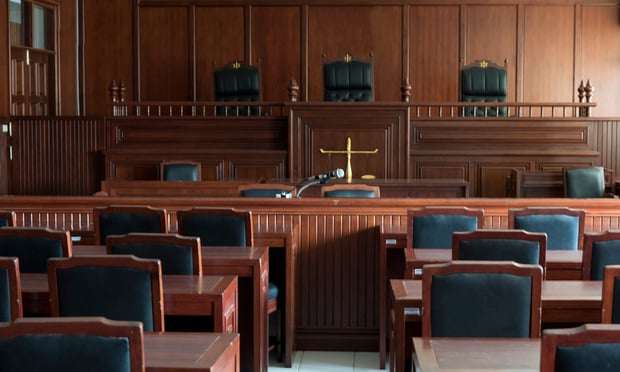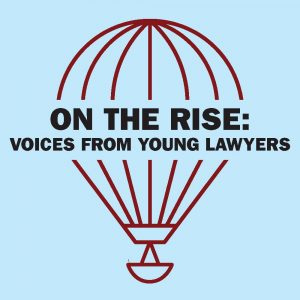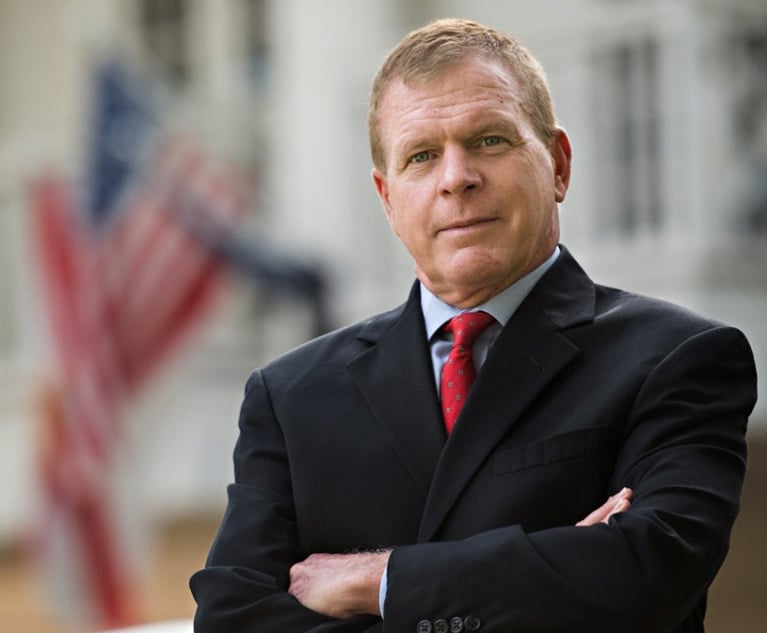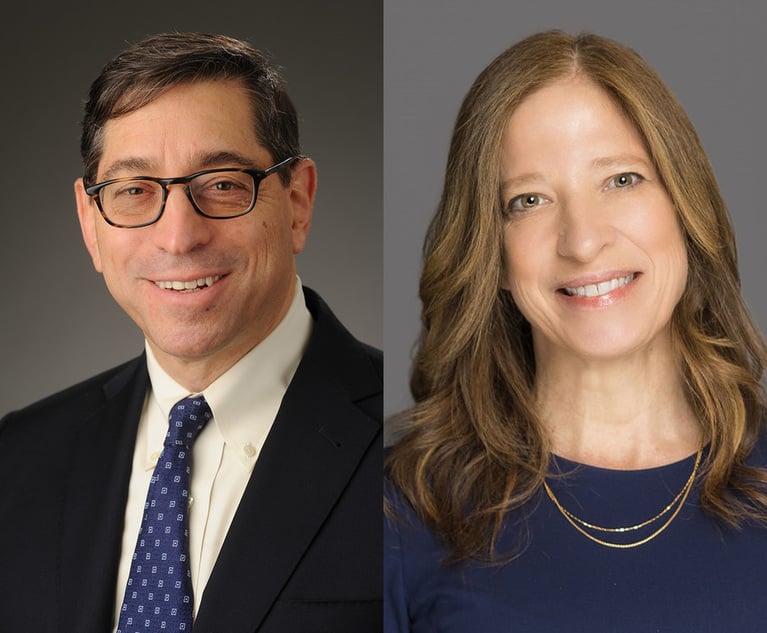'Ladies and Gentlemen of the Jury': How to Handle Your First Trial Like a Vet
Be mindful of the jury. Be ready for the unexpected.
December 11, 2019 at 04:56 PM
5 minute read

Many lawyers vividly remember their first jury address—the moment when a "litigator" becomes a "trial lawyer." For many, a trial is something they've worked toward since the first year of law school. That first trial can be thrilling and unlike anything else in the law. Below, I offer some advice for young lawyers approaching that career milestone.
Prepare, prepare, prepare. When trying your first case, preparation is key. Think through the story you want to tell the jury and script every moment to advance that narrative. Identify the questions you intend to ask, collect the exhibits you intend to introduce, and anticipate the objections you expect from the other side. Thorough planning will help you develop a mastery of the case and build your confidence as trial nears.
Thorough planning will also help you appear polished and professional. Your credibility, after all, will drive the jury's decision. When you deliver closing arguments, you want the jurors to believe what you say. They won't if you appeared flustered and disorganized when questioning witnesses.
Expect the unexpected. Trials have only one certainty: Something unexpected will happen. A witness will change his testimony. A new piece of evidence will be found. A judge will render an unforeseen ruling. Be ready for that surprise. And, be flexible and nimble.
Extensive preparation will help you take in stride the inevitable unexpected turn. It will help you understand the redefined evidentiary landscape, allowing you to pivot gracefully in response and keep your poise in front of the jury.
 The jury is always watching. Before becoming a lawyer, I was a high school science teacher. One of the great teachers in my life—a professor in my education coursework—was fond of telling us, "You are always teaching them something." His point? Students would constantly be watching us. Our curriculum wasn't limited to our lesson plans, and our instruction didn't begin and end with the stroke of the bell. We were teaching from the moment we walked into the school each morning until the moment we left at the end of the day.
The jury is always watching. Before becoming a lawyer, I was a high school science teacher. One of the great teachers in my life—a professor in my education coursework—was fond of telling us, "You are always teaching them something." His point? Students would constantly be watching us. Our curriculum wasn't limited to our lesson plans, and our instruction didn't begin and end with the stroke of the bell. We were teaching from the moment we walked into the school each morning until the moment we left at the end of the day.
My professor could have been talking about lawyers' interactions with juries. Always think about what you are communicating to the jury, because you are always communicating something. For example, my first jury trial was a civil rights case brought in an Illinois federal court by a prison inmate against several prison guards. My client had been convicted of a "Class X" felony, the most serious type of crime in Illinois. Under the court's pretrial rulings, the defense could impeach my client with the felony conviction, but could not elicit any testimony about the seriousness of the conviction and underlying conduct.
Nonetheless, when my client took the stand, defense counsel asked if he had been convicted of a "Class X" felony. I shot out of my chair with an objection. The judge sustained. And my client didn't have to answer. But if the jury hadn't inferred the answer from defense counsel's question, it certainly could have done so from the swiftness and vigor of my objection. A measured, "nothing-to-see-here" approach to the objection would have better advanced my case.
If the jury is in the box and you are sitting at counsel table, you are engaged in advocacy for your client, whether you are addressing the jury or not. Everything you do will be scrutinized by the jury, will influence their perceptions of you and your client and will impact your case.
Know the importance of resolving issues outside the jury's presence. Because the jury is always watching, great trial lawyers avoid raising issues in front of the jury when the ensuing colloquy might prejudice the client's case.
For example, in the same trial opposing counsel objected to my line of cross-examination as irrelevant. The objection allowed me to explain the relevance to the judge—but, more importantly, to the jury as well. Essentially, I gave a mini-closing argument, highlighting the significance of the testimony and the conclusions that the jury could draw.
By resolving such issues outside the jury's presence, a lawyer can minimize the risk that an objection will focus the jury's attention on unhelpful evidence, giving it outsize importance in the case. The best lawyers will anticipate these issues and ask the court to address them in pretrial motions, before the jury enters, or after the jury retires. Failing those options, a lawyer might ask for a sidebar to address an issue. But note, that option could leave the jury with the impression that you are hiding something.
Ultimately, the best trial lawyers don't give opposing counsel the opportunity to narrate their theory of the case in real time. They control, as best they can, what the jury sees and hears.
Be authentic and have fun. When trying a case to a jury, nothing matters more than your own credibility. And nothing destroys credibility faster than inauthenticity. As you craft your strategy and develop your style as a trial lawyer, remain true to yourself.
Finally, have fun. You only get to try your first case once.
Eric Nitz is a partner at MoloLamken. He represents individuals and companies in white-collar criminal investigations, congressional investigations, and regulatory matters. He has also argued appeals in the D.C. and Federal Circuits, and has briefed appeals in the U.S. Supreme Court and numerous courts of appeals.
 Have you joined our group ALM Young Professionals Network on LinkedIn? We're having powerful conversations that tackle the challenges we all face early in our careers. Request to join here.
Have you joined our group ALM Young Professionals Network on LinkedIn? We're having powerful conversations that tackle the challenges we all face early in our careers. Request to join here.
This content has been archived. It is available through our partners, LexisNexis® and Bloomberg Law.
To view this content, please continue to their sites.
Not a Lexis Subscriber?
Subscribe Now
Not a Bloomberg Law Subscriber?
Subscribe Now
NOT FOR REPRINT
© 2025 ALM Global, LLC, All Rights Reserved. Request academic re-use from www.copyright.com. All other uses, submit a request to [email protected]. For more information visit Asset & Logo Licensing.
You Might Like
View All

Restoring Antitrust: Returning to the Consumer Welfare Standard

New York Mayor Adams Attacks Fed Prosecutor's Independence, Appeals to Trump
5 minute read
Trending Stories
- 1Uber Files RICO Suit Against Plaintiff-Side Firms Alleging Fraudulent Injury Claims
- 2The Law Firm Disrupted: Scrutinizing the Elephant More Than the Mouse
- 3Inherent Diminished Value Damages Unavailable to 3rd-Party Claimants, Court Says
- 4Pa. Defense Firm Sued by Client Over Ex-Eagles Player's $43.5M Med Mal Win
- 5Losses Mount at Morris Manning, but Departing Ex-Chair Stays Bullish About His Old Firm's Future
Who Got The Work
J. Brugh Lower of Gibbons has entered an appearance for industrial equipment supplier Devco Corporation in a pending trademark infringement lawsuit. The suit, accusing the defendant of selling knock-off Graco products, was filed Dec. 18 in New Jersey District Court by Rivkin Radler on behalf of Graco Inc. and Graco Minnesota. The case, assigned to U.S. District Judge Zahid N. Quraishi, is 3:24-cv-11294, Graco Inc. et al v. Devco Corporation.
Who Got The Work
Rebecca Maller-Stein and Kent A. Yalowitz of Arnold & Porter Kaye Scholer have entered their appearances for Hanaco Venture Capital and its executives, Lior Prosor and David Frankel, in a pending securities lawsuit. The action, filed on Dec. 24 in New York Southern District Court by Zell, Aron & Co. on behalf of Goldeneye Advisors, accuses the defendants of negligently and fraudulently managing the plaintiff's $1 million investment. The case, assigned to U.S. District Judge Vernon S. Broderick, is 1:24-cv-09918, Goldeneye Advisors, LLC v. Hanaco Venture Capital, Ltd. et al.
Who Got The Work
Attorneys from A&O Shearman has stepped in as defense counsel for Toronto-Dominion Bank and other defendants in a pending securities class action. The suit, filed Dec. 11 in New York Southern District Court by Bleichmar Fonti & Auld, accuses the defendants of concealing the bank's 'pervasive' deficiencies in regards to its compliance with the Bank Secrecy Act and the quality of its anti-money laundering controls. The case, assigned to U.S. District Judge Arun Subramanian, is 1:24-cv-09445, Gonzalez v. The Toronto-Dominion Bank et al.
Who Got The Work
Crown Castle International, a Pennsylvania company providing shared communications infrastructure, has turned to Luke D. Wolf of Gordon Rees Scully Mansukhani to fend off a pending breach-of-contract lawsuit. The court action, filed Nov. 25 in Michigan Eastern District Court by Hooper Hathaway PC on behalf of The Town Residences LLC, accuses Crown Castle of failing to transfer approximately $30,000 in utility payments from T-Mobile in breach of a roof-top lease and assignment agreement. The case, assigned to U.S. District Judge Susan K. Declercq, is 2:24-cv-13131, The Town Residences LLC v. T-Mobile US, Inc. et al.
Who Got The Work
Wilfred P. Coronato and Daniel M. Schwartz of McCarter & English have stepped in as defense counsel to Electrolux Home Products Inc. in a pending product liability lawsuit. The court action, filed Nov. 26 in New York Eastern District Court by Poulos Lopiccolo PC and Nagel Rice LLP on behalf of David Stern, alleges that the defendant's refrigerators’ drawers and shelving repeatedly break and fall apart within months after purchase. The case, assigned to U.S. District Judge Joan M. Azrack, is 2:24-cv-08204, Stern v. Electrolux Home Products, Inc.
Featured Firms
Law Offices of Gary Martin Hays & Associates, P.C.
(470) 294-1674
Law Offices of Mark E. Salomone
(857) 444-6468
Smith & Hassler
(713) 739-1250








